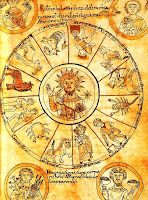
Some Xians contend that life is a gift. I believe that it is in the sense that life is a wonderful thing to have, but unfortunately for them, calling this life a gift is completely at odds with their beliefs.
According to Xianity, once we die we are headed for one of two locations, heaven or hell. (Note, Catholics also pontificate on purgatory, but that eventually leads to heaven, so for the sake of this argument, we can safely ignore purgatory.) So, let's examine the options.
Option 1: Person is headed for hell.
If a person is headed for hell, one might be tempted to think this life is a gift, but what kind of gift ends in eternal torment? The finite amount of time one has on this planet with its ups and downs is nothing compared to the permanent agony and torture that one would endure in endless amounts for eternity in hell. Even if one had the life of Riley in this life, and was always happy, this would quickly be overcome with the torture endured in hell. It would be far better for one to never have been born than to endure infinite torment.
Option 2: Person is headed for heaven.
If a person is headed for heaven, this life could not be considered a gift, as it is just a lowly way-station on the road to eternal bliss. Heaven is described as a place that is so great, that it far surpasses any happiness that is possible on this world. If one were bound for heaven, then one would be stupid not to want to get there as quickly as possible to start experiencing true happiness. Even living the life of Riley would not compare. This life is only keeping you from true happiness and is therefore not a gift.
As an atheist, I am free from these delusions of the afterlife and can truly enjoy life. But, a Xian that holds to a logically coherent view of the world must necessarily detest this life as it keeps that person from enjoying their true reward, while also noting that those poor schmucks bound for hell would be better off not being born.









